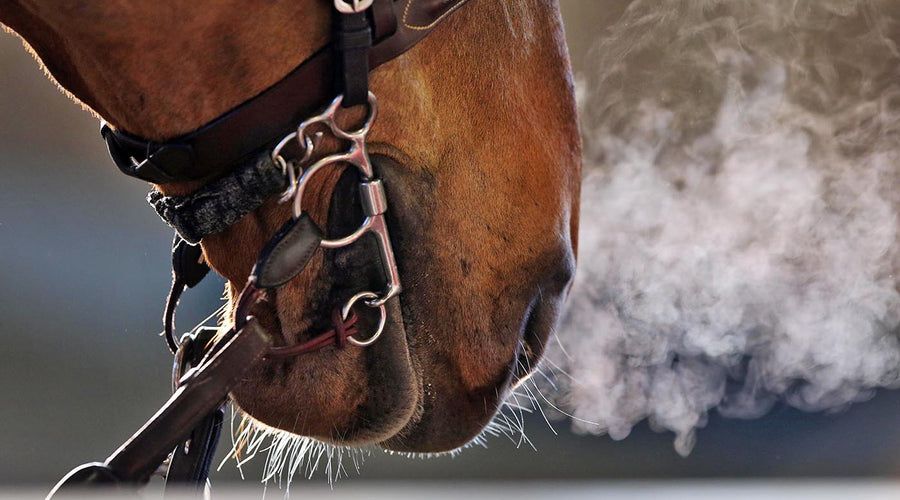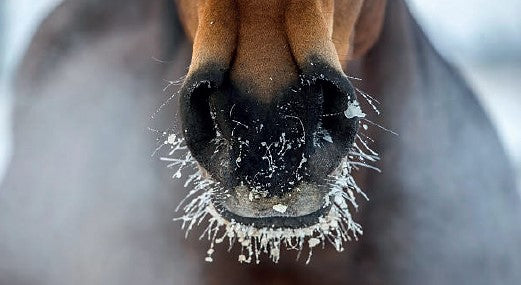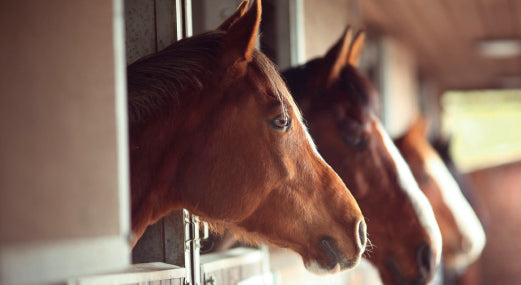Knowledge Base
Sweet-Itch, Equine Asthma & The Gastrointestinal Tract
A large component of immunity is linked to what is going on within the gastrointestinal tract and a large amount of the body’s immune cells reside within the gastrointestinal tract (Vighi et al. 2008). The gut microbi...
Read More
Could you be allergic to your Horse?
We are used to hearing about people who are allergic to cats and dogs but possibly less familiar with hearing about people who are allergic to horses. Perhaps 15 years ago Horse and Hound ran an April Fool’s day spoof...
Read More
Your horses’ ECG and heart rate on your mobile phone!
There was a time when a horses’ ECG would be studied in specialist clinics only with the horse standing attached to a large piece of equipment like the one featured (1) (rescued from a skip at the Animal Health Trust ...
Read More
Latest research into heart rates of horses during cross-country in eventing
A horses’ heart rate (the number of times its beat per minute) tells us how hard it working. The harder the horse works the higher the heart rate. It’s the equivalent of the rev counter in a car which tells us how har...
Read More
Would you like ice with that? Whole-body cryotherapy for horses!
The application of ice or snow or very cold water or packs containing cooling gels which have been cooled in freezers to relieve inflammation, pain and swelling is a commonly used first-aid technique for both people a...
Read More
Feeding chromium increases insulin sensitivity in horses
Insulin insensitivity or insulin resistance is a common feature of both equine Cushing’s disease (Pituitary pars intermedia dysfunction – PPID) and equine metabolic syndrome (EMS). Insulin insensitivity leads to a num...
Read More
Let’s Talk About Sex!
Preconceived versus Actual Behavioural Differences between Geldings and Mares
Horse trainers, owners and riders may have preconceived ideas about horse behaviour, temperament and rideability, based solely on the sex o...
Read More
Does Conditioning Equine Athletes on Water Treadmills Improve Fitness?
Equine water treadmills were initially designed for rehabilitation of musculoskeletal injuries but are now also widely used for conditioning sport horses. High-intensity exercise is important in improving fitness in h...
Read More
Could National Hunt Racing be made safer by Changing the Colours used to Mark the Fences?
Horseracing over jumps is a significant sport in the UK. But it also carries a high risk of injury. From 2013-2018 the death rate in National Hunt races, where horses jump fences ditches, was 1 in 250 starts! Most inj...
Read More
Safe & Legal Feeding
Many of you reading this will compete in affiliated competitions and will no doubt have an interest in nutrition and what is best to feed and supplement your horses.
With feed & supplements playing a vital role in...
Read More
Is Acute Colic Associated with Changes in the Equine Colonic Microbiome?
The horse’s hindgut (large colon) is populated with billions of micro-organisms that help digest the large quantities of cellulose (a type of complex carbohydrate) consumed in a forage-based diet. Horses cannot digest...
Read More
How likely is your horse to be injured during travelling in the UK and what can you do to reduce the risk?
Thousands of horses are transported by road in the UK every day, most of these according to a 2013 survey in single or double horse trailers (55%) and the remainder in small and large horseboxes (41%) although some ow...
Read More













